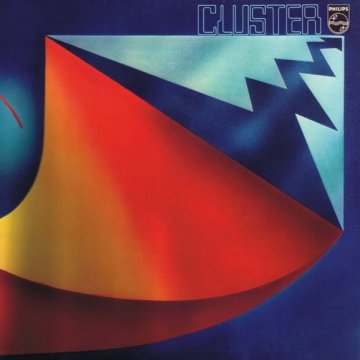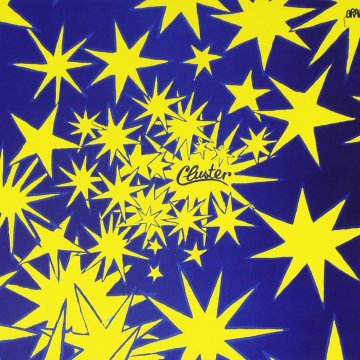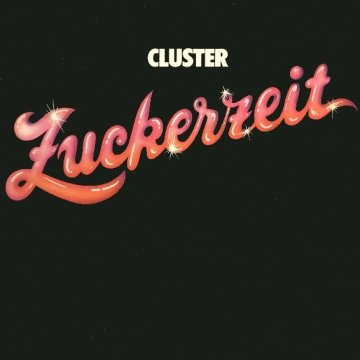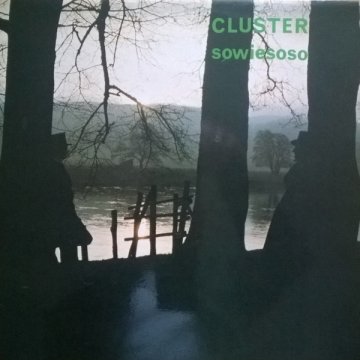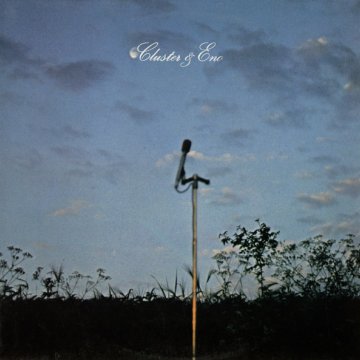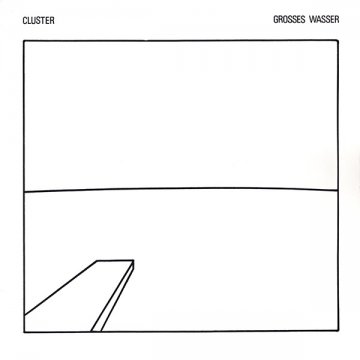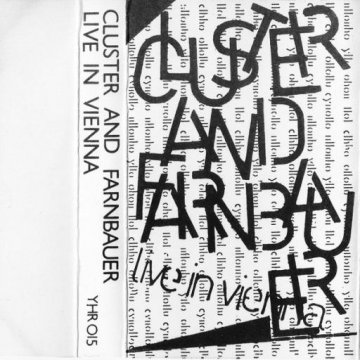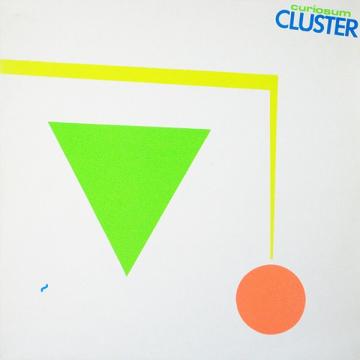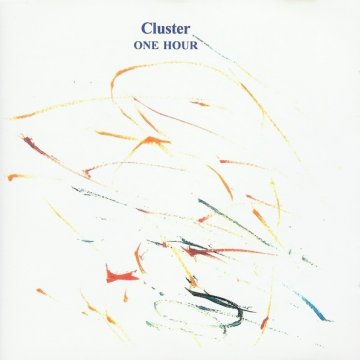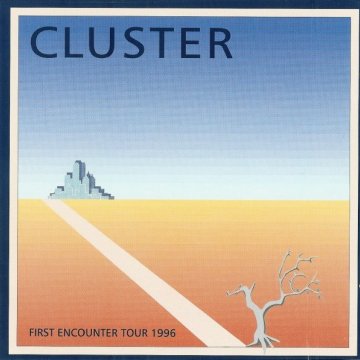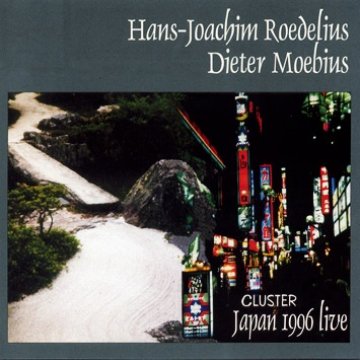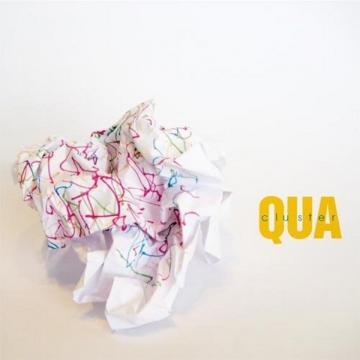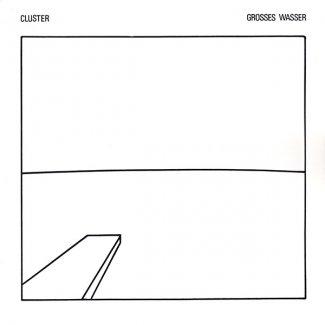
Grosses Wasser
I
Less is More
II
There is a tradition in Japanese art called 'Ma'
where the goal of the drawing is to lead the viewer to
a state of emptiness and relaxation.
III
The Zen simplicity of Dieter Moebius' cover art:
a springboard poised over an ocean of white space.
IV
White is the most empowering of all colours,
a blankness that we can shade in.
V
Likewise, Grosses Wasser starts from "a point of zero".
VI
For Dieter Moebius and Hans-Joachim Roedelius
don't do ideas, plans or written music scores.
VII
Each track begins with the random chance of
a sonic fragment that lurks in the subconscious.
VIII
That fragment is looped into a hypnotically repeating motif.
IX
The motif can assume any form - it could be a harsh industrial pulse
or melody that flows like clear spring water.
X
From there, Moebius and Roedelius go with the flow and slip in
their random chords and odd juxtpositions of sound.
XI
Anything could happen: the result may be solemn or
hilariously daft - jaggedly abrasive or weirdly beautiful -
sophisticated or child-like.
XII
But rarely predictable.
XIII
The scene: Berlin's Paragon Studios, run by Peter Baumann -
fleeing Tangerine Dream's insanely busy schedule
for life as an independent producer.
XIV
Baumann saw in Cluster's music the sonic Zeitgeist
he thought he studio should become known for.
XV
"What I liked in Cluster was their ability to strike a delicate balance
between natural and abstract sounds".
XVI
"Most musicians use a synthesizer just to imitate other instruments.
it takes a long time to use the technology creatively and make it
more than just the strawberry on top of the cake."
XVII
"You simply cannot go into a shop and buy that knowledge
off the shelf, only the device itself".
XVIII
So, in June 1979, high technology met chance music.
XIX
One one side, Baumann's custom-built Projekt Elektronic,
at $18,000, one of the world's most expensive synthesizers.
On the other, the unpredictable Moebius and Roedelius.
AVANTI
A depth-charge bass guitar pulse, hushed synth strings;
strangely beautiful melodes fall out of the sky.
PROTHESE
Weird popping funk, delicate wind chimes, wordless call
and response. Disco music from a parallel universe.
ISODEA
Cluster's mix of grace and slapstick; a tiny musical box
constructed with rusty springs and elastic bands.
BREITENGRAD 20
Radio pop heaven; the dub chatter of drum machines.
Bio-mechanical whale sounds from the deep.
MANCHMAL
An unsophisticated rippling nursery tune; back to the womb.
XX
By the close of side one, you can sense that deep-held
Japanese religious tenet: 'Everything is Buddha'.
XXI
In Buddhist thought, social judgements about man, machine
and nature become diffused.
XXII
As writer Karl Taro Greenfeld notes: "The Japanese have a
different relationship to technology than the West. They simply
view their PC or television as another object, like a rock or a tree,
which is of nature, and hence of themselves".
XXIII
"This is why such oddities as shrines piled up with lavatory brushes
are not uncommon in Japan, or why Buddhist priests pray
for worn out microchips. Everything is Buddha".
XXIV
The genius of Peter Baumann is to use the cutting-edge technology
at his disposal to produce Cluster's man-machine-nature muse
as simple clean lines of sound.
XXV
He accentuates these with his own subtle index of techniques:
drop out, long and short delay, noise gates, extreme
equalization, zipping highs and rumbling lows.
GROSSES WASSER
On the 19-minute title track, Cluster's tiny stream becomes a river
that surges to an oceanic consciousness.
XXVI
Even on this quasi-symphonic scale, there's often a sense not of music
made my humans, but of found sounds channelled by human hands.
XXVII
As if music is looking for (and sometimes finding) a way to leave the
human ego behind, to assume states of water, flows of energy,
bodily noises, mechancial functions, landscapes.
XXVIII
As if Cluster's Zen-like objective is to just relax and allow
something that already exists, that has its own laws,
to flow of its own accord.
XXIX
As Tokyo-based Susuma Hirasawa says:
"It is hard to play a musical instrument without human intent.
My ideal would be to touch them like a guardian angel
and let them sing as they wanted".
XXX
"Personally, I could never achieve that state. But if I were free
from inspiration it might be possible to create
something like Grosses Wasser".
XXXI
"Whenever I feel exhausted by music that is full of ambition,
I listen to this record and find peace".
This text was reproduced as part of the official sleeve notes for the Water label's CD reissue.
By Stephen Iliffe
